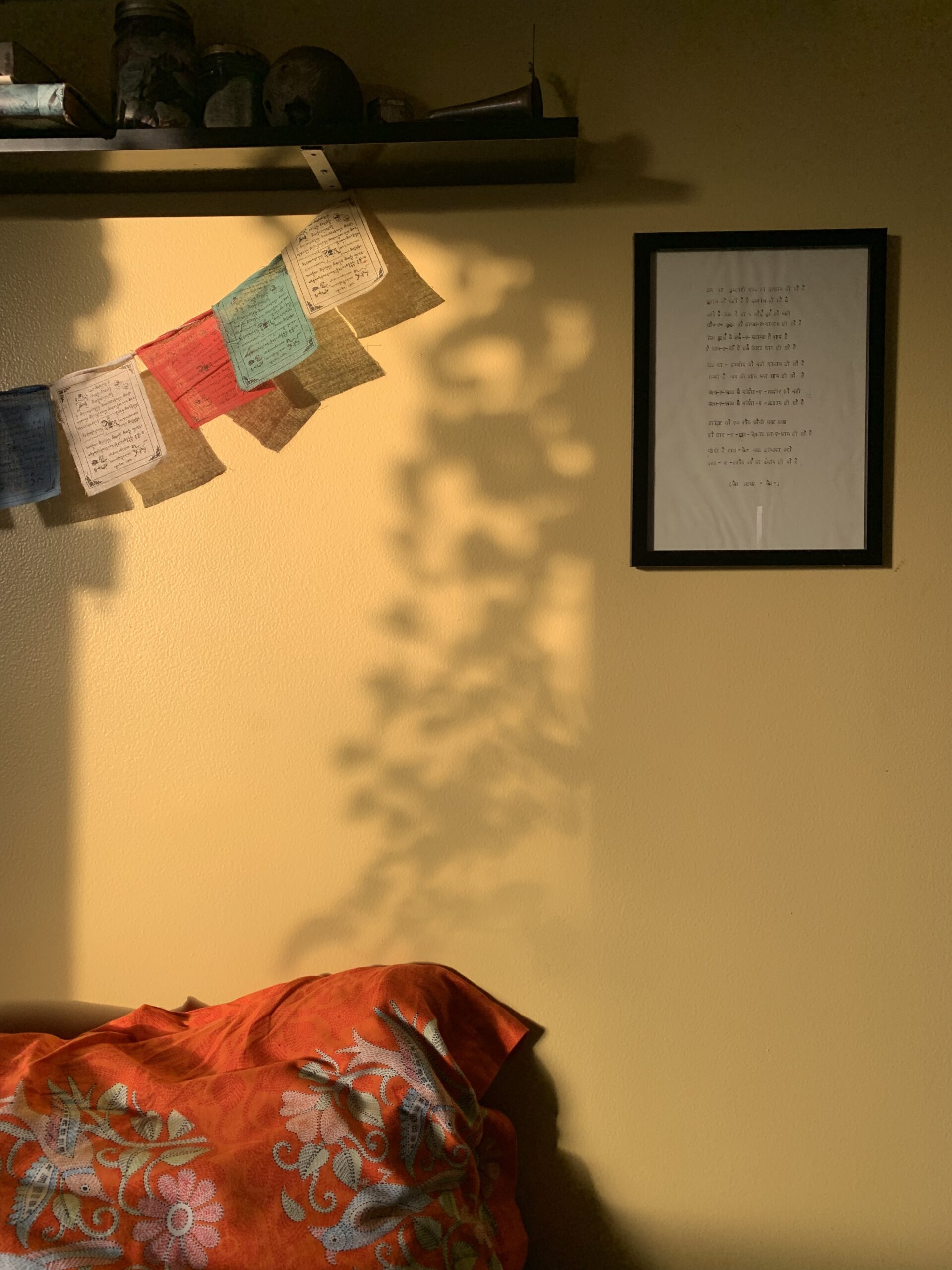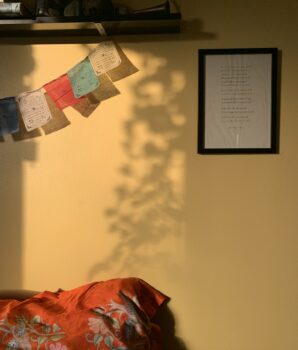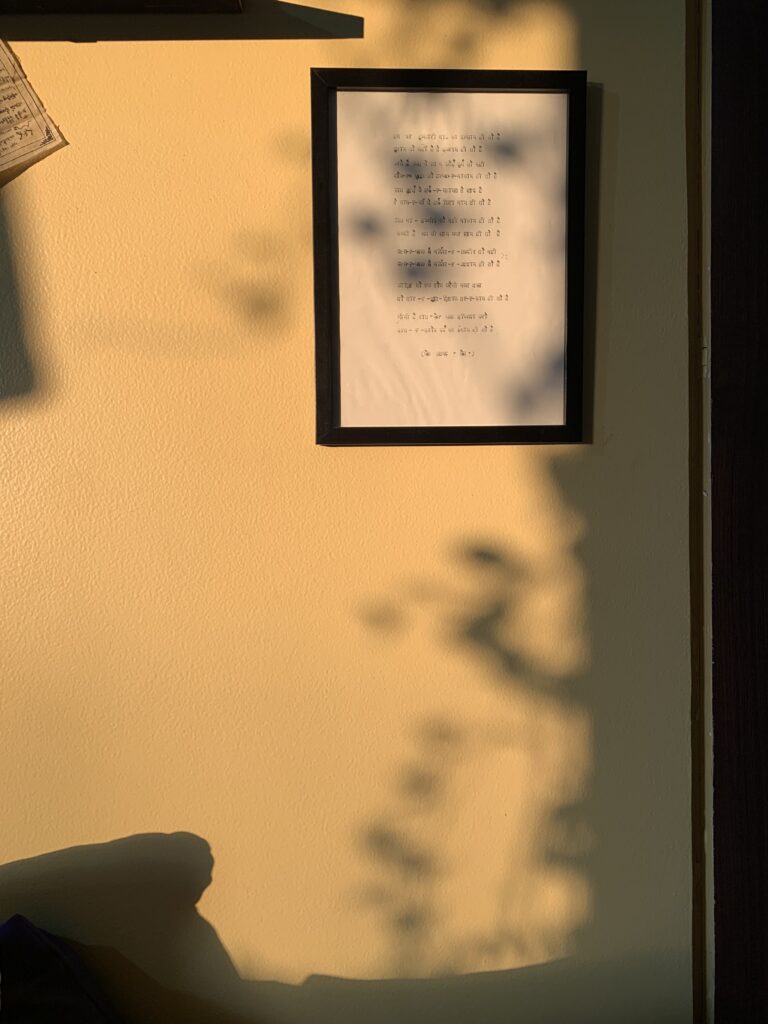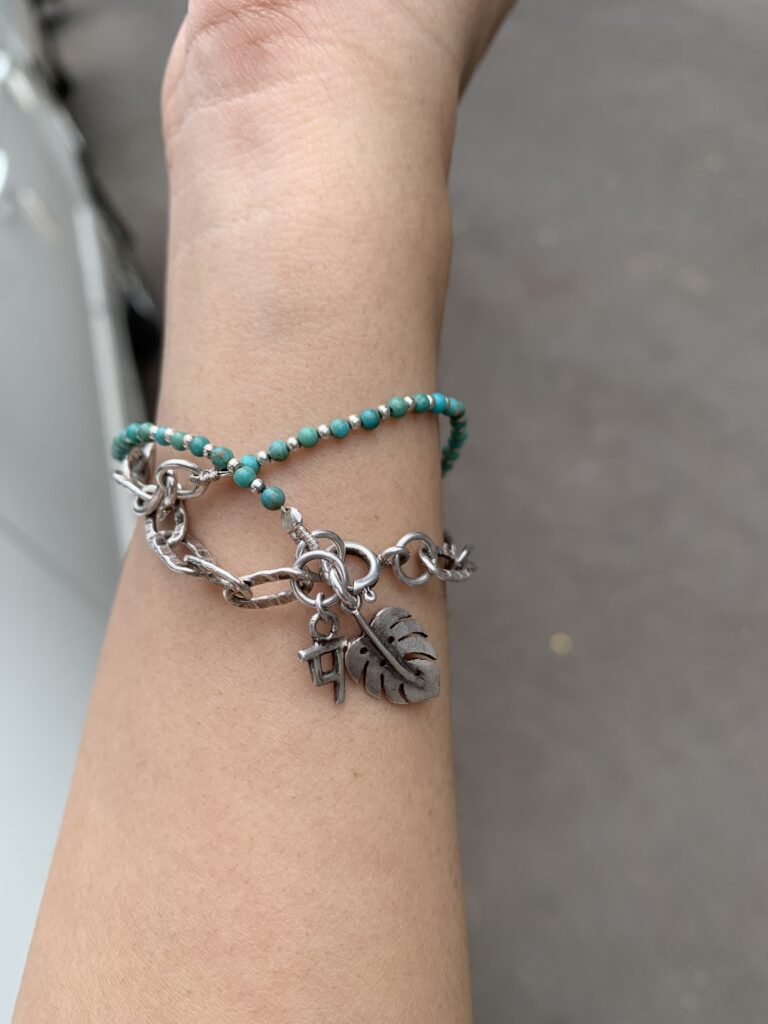Some people know what you looked like in school, they know you take your coffee black, no sugar thanks. They had the front-row seats to your heartbreaks, defeats, and losses. They witnessed you pull yourself together. They have seen the armor and the chinks in it. They could kill you with such information if they so wish to. An ordinary-seeming sentence can blow you up like a fuse, bursting your chest open. You won’t remember much of what comes later, only darkness, on another side of which you will come sobbing, shivering, embarrassed. If done efficiently, this will happen often and hurt just as badly as it did the first time.
2 weeks ago, my uncle – the kind you open up to but wish you hadn’t – said something hurtful to me. He crafted this sentence by carefully fitting together the lego pieces of my fears, insecurities and failures. He did it in the audience of our extended family. Made a spiteful comment about my role in mummy’s mental health; on the same day that I managed to procure Mumma’s medicines. Medicines that were sourced over 3 weeks of fighting doctors, prescriptions, medical stores, towns and courier services on one hand and papa, mummy, R’s and my intertwined sanities on the other.
I thought I was at the tail end of the marathon that were the last 2 years – of throwing myself at my triggers, sacrificing bits of my life, being an unpaid therapist, a relationship manager to disinfect the ‘present that is soiled by the past’, resetting priorities, retelling stories of hurt, green-housing feelings through nights. I had just about fixed the rotten parts of the past, moved to the present when he tripped me up. He brought back the unwieldy sense of loss, helplessness and fear from my childhood, with a shoddy sentence.
I wanted to snap back – I knew the chinks too. I could have caused more hurt than I had to endure. Empathy, when bent that way, can cut through flesh. Mummy and I are expert players. We never tap out of a fight. We were taught to uphold the valor by fighting till the end, even if it means we take our army down with us. It comes from having romanticized too many Savarkars – this idea of holding of ideology above human life.
But I didn’t punch back. I picked up my hurt and walked out the door, vading through my broken ideologies. Behind me I heard “ahh..now she’ll cry. Typical”. He was right. I hid in a dark corner of the house and cried. I could hear my family making merry outside. I cried from the ache of my uncared-for, unreciprocated sadness. “You are weak,” the sadness said in my Nani’s voice – No one stood up for you, You didn’t sacrifice, you used it as an excuse for your failure, You failed, You fail. I sat with the sadness, felt around it and tried to memorize it. It was the colors of the orphanhood of 20 years ago, standing outside the school, forgotten, as others went ‘home’.
The toxicly-positive, haloed angel sitting on my other shoulder tried to help. She offered the moral high ground of “you are a better human for not acting like him”, “anger defeats the purpose”, “an eye for an eye”. But none of it, no consolation or reparation, helped. Something didn’t fit. This should not have mattered. My family’s laughter around the dining table, our routine at the TV, the shared favorite songs, the time mummy forces us to spend together, the fact that she calls it “family-family khela” – are more than the reward I had expected out of my work. Then why had the uncle’s words hurt?
I am a big believer in the power of time, therapy and rest. They made wieldy my emotions from the heavy night of crying. Anger and hurt acted tame on this side of rest. But everything comes at a cost. With them, the fear and insecurity that had been held together by them spilled too. So now my fear of abandonment, debilitating helplessness, and sense of loss were tossed around in the open.
Being rendered helpless, my primal brain reached for my parents. Only my parents could have tucked my wounds back in. But for that, they would have to be my allies. And I’d have to be a better ally to them. We would need to communicate – the good and bad – at the cost of vulnerability or hurt sentiments/egos. Not leave any guessing to anxious, low self-esteemed, hyper empathic imaginations.
But allyship between family against the family is so complex. My parents compared it to war; to picking sides, weapons and hurts. “You want us to yell at him?” asked my conflict-averse parents.
I sat them down. I told them that being a good ally is not about blindly supporting each other. It isn’t about forcing the other into complacency. It is like being each other’s mirrors, reflecting the good and bad, softly. Show us the reality; so we don’t believe what silted ponds reflect at us. Communicate – appreciate, scold, hold hands, SEE the other. Even if it didn’t come naturally to us; especially because it doesn’t come naturally to us. Neither let the good go unsaid and sink to the bottom; nor let the hurtful pile till it pushes past the rim.
I told them that I never want them to go to war for me; not fight a brother for failing as an uncle. I want to fight my own battles. All I need from them is some rooting. I need us to root each other to reality, so we don’t lose ourselves in people’s perceptions. I spoke to them for a long time. They saw me. In the future, they would come to my side with hugs and reassurance when I was triggered.
The tension between me and my uncle passed unceremoniously. I was glad that I hadn’t lashed out at him. The embarrassment and guilt of losing control can obscure one’s vision. And I, for once, saw clearly. I didn’t feel superior and all forgiving, but wiser – in a ‘I pick battles worthy of my (limited) energy’ way. I had chosen my battle and I had fought well.
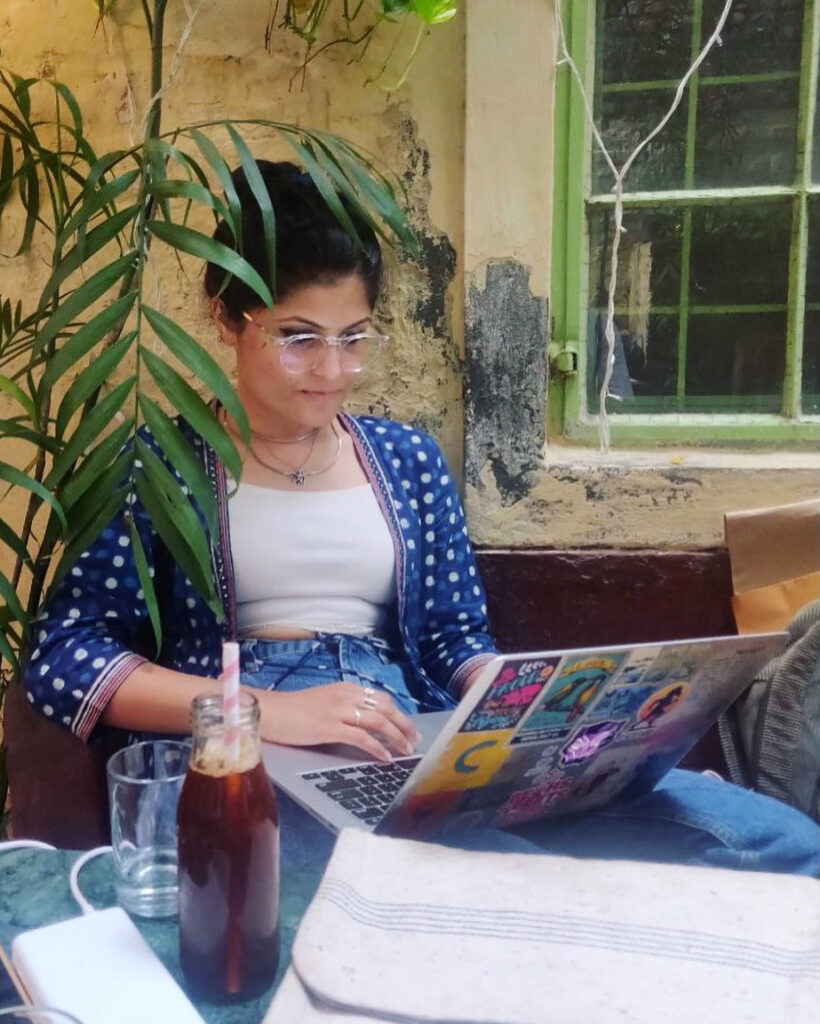
Before this incident, fighting or fleeing had seemed like the only possible response. Both so debilitating in their intensity, moving one to action before thought – driven by fear or anger like an animal caught in barbed wire. The fear always overpowers my ability to choose. Make me act on worst-case scenarios before they happen, with the urgency of emergencies. So, this newfound capability to make educated choices in the face of fear felt like a sheer privilege, a power move.
This incident was my first experience in zooming out, considering, looking before leaping. I realized that when my energy permitted, I could choose to pick a fight – stand, raise my voice, hold my ground over a “small” misogynistic act. Otherwise, I could choose to back off. This was different than lashing or giving up in that it has agency. The latter lack control, like a dam unyielding or breaking. But this felt like driving; conscious and calculated.
It helps that mummy papa are better allies now – respect my feelings, do not pressure me to meet bullish relatives and don’t say hurtful things when angry, appreciates the small acts of help, listen without offering solutions, hug even though it did not come naturally to them. Eventually, people came to understand that my silence in the face of an attack is not that of submission or fear, it’s is a silence of choice. People tend to poke you less if they don’t expect cheap entertainment at the end of it.
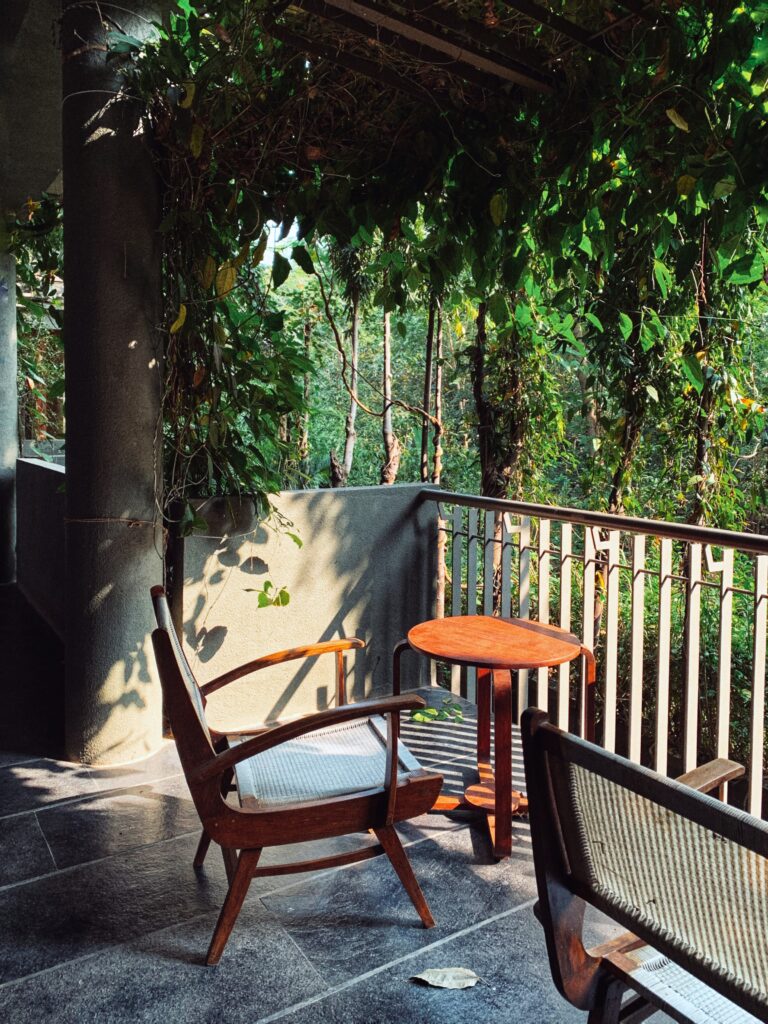
It has been more than a year since the incident. Last week, mummy and Dadi were angry at each other, over Aachar! In power, play, and shared lives, objects become symbols. Today, a jar of Aachar stands for the right to speak, to occupy space and power. The bottle of pickled fruits that makes insipid food palatable had become a potential trigger. Any statement – a backhanded taunt, a wayward demand, a misplaced laugh – can cause mummy to go down the spiral of her past. A spoonful of achar will unleash 3 decades’ worth of anger at being wronged.
The achar war went on for a week. Mummy stayed unwilling to share; dadi, unable to let go. I watched mummy closely for signs of trouble – the tightening of the jaw, loudness of speaking, flaring of nostrils. These are potential starts of a spiral; the beginning of the end, if you may. But mummy neither fought nor withdrew from her in-laws, who continued to hover over the achar. She wasn’t angry. She didn’t assign blame. She went about her work as I looked on in shock and awe. “I know I can pick a fight, shut them up,” she tells me “but I don’t want to prove anything. I don’t want it to affect all of our moods”
Mummy is a new person. She picks battles, conserves energy, and reroutes herself. This has rewired her relationships with her relatives. They visit more, talk openly and respect her boundaries. This beautiful positive feedback loop helps mummy hold on to her new self. Mummy feels more solid too. As if all her selves – their dispersed priorities, self-esteems, moral compasses – came to settle in one. A single root no more attached to people’s perspective of her. Agency, I think, it’s called. “I like this new self,” she tells me. I am filled to the brim with pride at her and I tell her this often.
It has been more than a year since the incident. Our lives have changed. Home transformed too. It has more give, a margin of error and allows for human follies – being irritated, sulky, or rude without causing a collective mental breakdown. It is more solid now; you can huff and you can puff but it doesn’t blowdown. We went from hiding behind shoddy armors to understanding our wars.
It’s been a year since the incident, everything has changed. But I haven’t been able to shrug off the detachment and indifference I donned then. Maybe I never will; maybe I am rooted in them, not a better self. I cry about it; admitting defeat.
Mummy, unknowingly, assures me that this isn’t true recently.
“I feel very proud of myself when I handle issues calmly” she said like an excited child, giving me a high-five “and I wanted to thank you.”
“Me? Why?”
“I learned this from you! I found this self I like and during testing times, I focus on being her.”
“What do you do when you can’t find her?”
“I tell myself she exists. Maybe I don’t have the energy to be her. I hold her till I do. I remind myself hold her, kindly, gently, like you told me to.”
